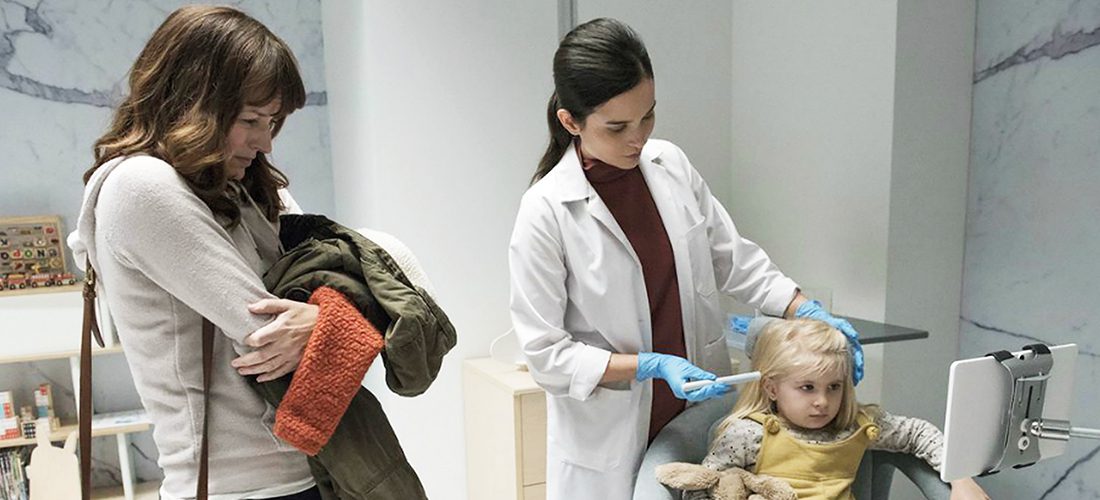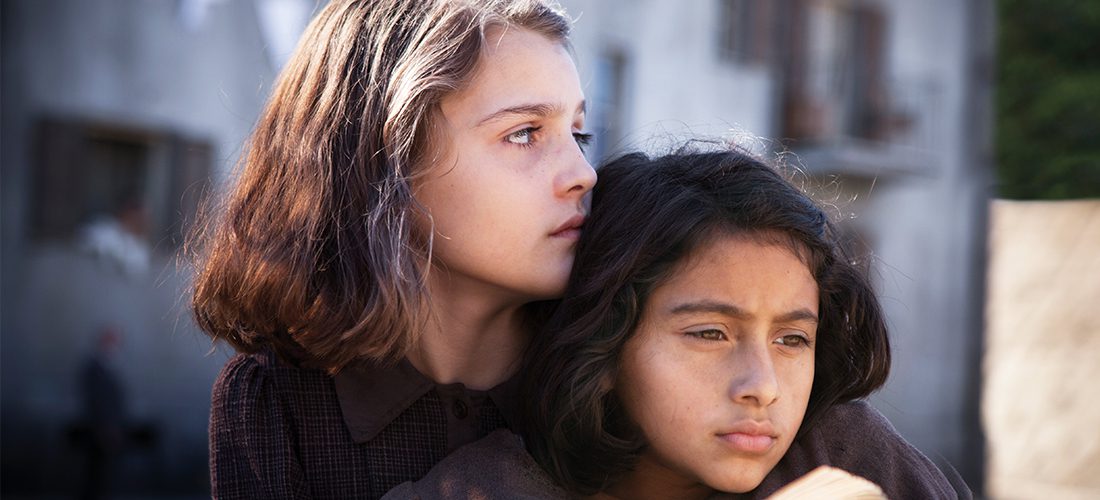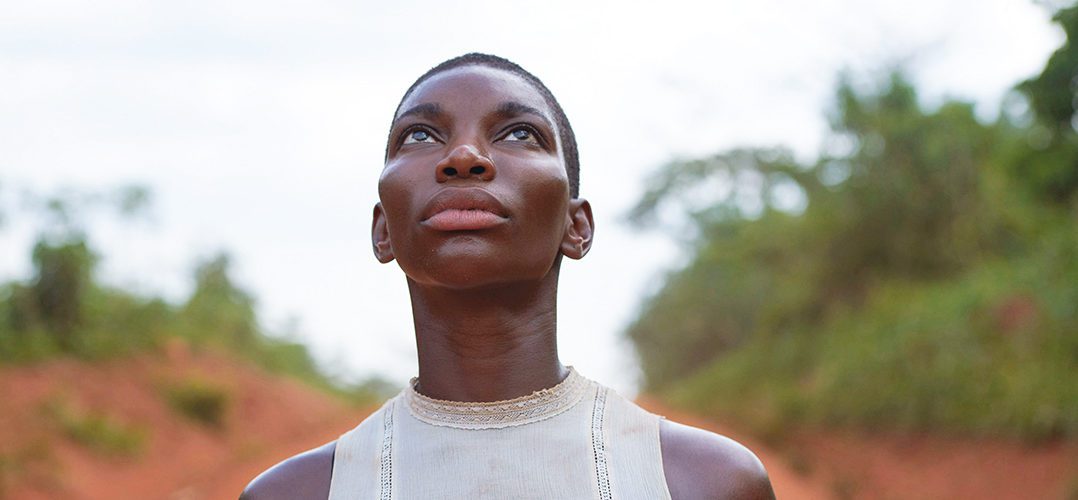Producers, writers and actors have for years been dreaming of a time when creative success leads to commercial success. With the ever-widening array of channels and platforms looking for channel-defining original content it looks like that time might finally have come.
As the audience shift to on-demand viewing accelerates, the business of scripted television has become ever more complex. How to finance shows, how to window them, whether to release them all at once or as weekly appointments-to-view, how much to spend on marketing — all of these questions and more have taken on a renewed urgency.
What this means for the production community
One group that appears to be thriving in this era of disruption, however, is the production community, whose creative product is in more demand than ever.
See-Saw Films’ chief operating officer of television, Hakan Kousetta, and head of television Jamie Laurenson, say there is a new confidence among producers, particularly in terms of presenting projects: “The proliferation of commissioners looking for content with international reach has resulted in an opportunity to diversify our development slate.”
That fact is illustrated by See-Saw’s ability to bring feted director Jane Campion on board as the creative force behind two editions of the critically acclaimed limited series Top Of The Lake. And it is also evident in the company’s MIPCOM slate. Cannes headliners include short-form series State Of The Union, which sees Rosamund Pike and Chris O’ Dowd star in a production directed by Stephen Frears and written by Nick Hornby.
Commercially, Kousetta and Laurenson say, today’s climate offers more opportunities to finance shows in imaginative ways: “The one-stop shop of the SVOD commission can work in a producer’s favour for certain projects. However, an interesting by-product of this phenomena is the willingness of non-SVOD buyers to work together and co-commission, so that shows can be made at higher budget levels without exhausting their value globally.”
As the Campion and Frears examples illustrate, one particularly liberating creative development in the age of SVOD has been the ability of producers to move talent seamlessly back and forth between film and TV. Another MIPCOM headline for See-Saw is The North Water, an adaptation of Ian’s McGuire’s Victorian-era novel about a disgraced army surgeon who signs up as a ship’s doctor on a whaling expedition to the Arctic. This will be adapted by Andrew Haigh, who has been lauded both for his movie 45 Years and the HBO series Looking.
On talent more generally, the See-Saw execs believe the new landscape offers chances to fresh voices. They point out that the idea and execution is becoming as significant as the name and reputation of the writer, which means that there is more opportunity for new talent to break through This is especially the case in the SVOD landscape.
This also extends to diversity, Kousetta and Laurenson add. As more inclusion is demanded by both commissioners and audiences, there will inevitably be more diverse characters and worlds on screen in the future.

See-Saw is truly independent, as opposed to some companies that have sold stakes to larger networks. But this has not hindered development, argue Kousetta and Laurenson, who say they feel “very empowered” to work with A-list talent: “Being part of a bigger group may be advantageous to some indies but, from our perspective, we have never seen our independence as a barrier to entry for any aspect of the process.”
As co-founder of indie producer The Ink Factory, Stephen Cornwell has enjoyed global success with a star-studded adaptation of John Le Carre’s The Night Manager. His company has also just completed production on another Le Carre adaptation, The Little Drummer Girl, which will air on the BBC and AMC, and is being distributed globally by Endeavor Content/IMG. He says: “The really empowering thing for companies like us is that SVOD platforms, cable players and high-end free-to-air broadcasters all want brand-defining content.”
« Buyers are looking for shows that are not the normal »
One clear illustration of this is the freedom now given to producers to search for directors that can bring a unique vision to projects. In the case of The Little Drummer Girl, for example, this quintessentially British spy story will mark the TV directorial debut of Korean filmmaker Park Chan-wook, who will bring an epic cinematic sensibility to the six-hour production. Chan-wook will be supported by Korean cinematographer Woo-hyung Kim. “Buyers are looking for shows that are not the normal, which means, as producers, we can push the envelope on the creative ambition of our shows,” Cornwell adds.
Echoing the See-Saw team, Cornwell says there are no longer any meaningful creative limitations on what might appear on the development slate: “Our affinity lies with authored content. I think the only real limit on what we do is how passionate we are about a project and how distinctive we can make itt. If we can’t connect emotionally or make it unique, there’s no point.”
For Cornwell, one of the most exciting aspects of the current landscape is the way creative collaboration can build around a producer’s initial idea. “I think there’s a lot of respect among actors, directors and writers for Le Carre’s work, but I don’t think the audience was profoundly aware of The Night Manager until the likes of Hugh Laurie and Tom Hollander came on board,” he says. “As the talent joins in, it creates this cumulative effect that leads to a great end result.”
In practical terms, Cornwell says the new era has dispensed with the idea that a series has to be a specific length. In the same way that The Great Gatsby can excite just as much critical acclaim as War And Peace, “the SVOD era means it doesn’t make any sense to focus too much on the length of episodes, the number of hours in a series or the number of seasons in a show. That idea is increasingly becoming redundant.”
This thesis explains the range of different-length properties now available — and also the trend towards season-to-season and episode-to-episode anthologies. Black Mirror, now one of the most acclaimed TV series on the market, is as pioneering in form as it is in content.

Breaking down barriers to diversity
On diversity, Cornwell shares the See-Saw view that the new market empowers a greater range of voices. He notes that his company is currently in discussion with a leading African-American writer about collaborating on a TV project: “I think the broadcast industry’s systemic resistance to diversity is disappearing, because we are no longer looking at the market as a single block, but as a range of diverse audiences. And what’s really exciting is that younger audiences are embracing that diversity and helping it move mainstream.”
While Cornwell acknowledges that the cost of drama is going up, he suggests that, in a strange way, this has also led to a sense of commercial empowerment for producers: “With broadcaster licence fees covering less of the budget, it pushes the industry more towards co-production and that opens up independent financing opportunities, such as the one we have with 127 Wall Productions. I’m not sure how that will play out as the industry consolidates but, for now, it enables innovative partnerships.”
Neil Zeiger, founder and executive producer of Nevision, agrees that “the market has never felt like this before”. He adds: “You can tell the stories you want to tell, not spend your time working out how you’re going to tailor an idea for a specific broadcaster and slot. There’s a palpable feeling that we can be more creatively ambitious with our productions.”
In practice, this means that Nevision’s door is open to a wider pool of writers: “It broadens the scope of what we can do. Our focus is on working with people who are passionate about their project, which means we now have a very eclectic development slate.”
At the ambitious end of the scale, Nevision is partnering with Lionsgate on a scripted series about the nefarious side of the Middle Eastern oil business in the 1970s. “It’s a geopolitical thriller driven by central characters working for a major oil company in the region,” Zeiger says. “It’s one of those shows, like Succession or Black Earth Rising (top photo), that would have been thought out of reach of broadcasters a few years ago.”
For Zeiger, producer empowerment does not mean that all shows have to have the epic scale of the Lionsgate co-production — they can also be more locally attuned, such as Sally Wainwright’s Happy Valley. One of his own company’s biggest successes to date (as a gap-financing co-producer) is Keeping Faith, an intimate thriller set in Wales, which features characters deeply embedded in their local community. “That was a really interesting show because Vox Pictures’ Adrian Bate double-shot it in Welsh for S4C and English for the BBC,” he adds.

Local language shows, universal themes
Indeed, Keeping Faith is an object lesson in how local shows with universal themes can build momentum. In this case, the central character is a woman whose husband goes missing. After the Welsh-language version aired on S4C, the English-language version proved a huge hit for BBC Wales, pulling in the highest ratings in 25 years. The show then shifted to the BBC’s catch-up service iPlayer and continued to draw big audiences. As a result, the BBC elected to air the series on its flagship network BBC One, again garnering strong audiences. Keeping Faith has now been recommissioned by the BBC and licensed by production partner APC to Acorn Media in the US, Canada, Australia and New Zealand.
More generally, Zeiger says Nevision is also happy to involve itself in foreign-language drama — another area in which indies have been empowered by TV’s shifting landscape. “We’re a partner on SF Studio’s Swedish crime series Alex, which has been a big hit for Viaplay in the Nordic region,” he adds. “I think audiences are excited to see drama from different countries. And I believe the market is benefiting from the fact that subtitles are being written extremely well these days.”
The market is swarming with examples that illustrate this point. Beta Film’s investment in Spanish dramas Velvet and Grand Hotel is a current example. At MIPCOM, Beta Film will screen a new Spanish thriller, The Pier, created by Alex Pina (La Casa de Papel). Not to be overlooked is FremantleMedia’s support for Italian-language drama My Brilliant Friend. Still within the FremantleMedia family, German label UFA is also moving towards the completion of Deutschland 86, the sequel to Deutschland 83 and the second series in a planned trilogy.
Broadcasters invest to compete with SVOD
UFA Group CEO Nico Hofmann identifies several trends driving the sense of empowerment among producers. “Looking specifically at Germany, we’re at a very special moment where the public broadcasters are investing heavily in content and platforms to compete with Amazon, Netflix and Sky,” he says. “I also anticipate RTL increasing its investment.”
These broadcasters are not just commissioning more of the same, Hofmann adds: “The new series are provocative and radical — much riskier than German audiences are used to. I would include D83 in this, but also ZDF’s Bad Banks [not a UFA show]. It’s similar in pay TV, with shows like Babylon Berlin [Beta Film for Sky] and Hackerville, which UFA and Joerg Winger are making for HBO Europe and TNT Germany.”
At the same time, UFA is becoming more international in profile: “The DNA of Fremantle is very collaborative and I see us moving towards a situation where 30% to 40% of what we do is international co-production,” Hofmann says. “We’re enjoying a great relationship with the UK’s Euston Films, which we are working with on an adaptation of Robert Harris’ novel Munich.”
Commercial flexibility is apparent in the development of the Deutschland trilogy, Hofmann points out: “The first season did very well around the world, but not so well on RTL in Germany. But for D86, we were able to do a deal which saw Amazon pay more than half the budget [in return for which it has secured the show’s first window].”
In terms of production personnel, Hofmann reports similar trends to his peers. On the one hand, there is greater scope for on-screen diversity — Florence Kasumba will have a leading role in D86, for example — and on the other there are more film directors engaging with the medium. He is especially excited to have acclaimed director Michael Haneke helming Kelvin’s Book, a 10-part series to be shot in English. “There’s no way you would have seen that kind of project at MIPCOM 10 years ago,” he adds.
The indies’ sense of empowerment is unquestionably helped by the fact that they have powerful allies on their side. A case in point is Fremantle North America’s president of scripted, Dante Di Loreto, a former producer whose credits include Glee, American Horror Story and Temple Grandin. He says: “My division was set up specifically to serve storytellers. In this environment, they are empowered to create a great range of shows for the global audience. We are not going to force talent into a box, because we want this to be the place that the best creatives come. We have to be there to support their vision.”
Di Loreto’s slate underlines his point: “We are working with Dancing Ledge Productions and Random House Studios towards a TV drama based on the work of Paulo Coelho. We’ve also announced that Neil Gaiman and Akiva Goldsman [A Beautiful Mind] will be working with us on an adaptation of Mervyn Peake’s Gormenghast trilogy.”
The Gormenghast project was initially set up as a film, Di Loreto adds: “But now it makes sense as a TV production, because of the level of execution we can bring. That wasn’t possible 10 years ago.”

Indies on a roll
Other Fremantle North America projects in the pipeline illustrate the creative freedom now afforded to indies. An alliance with fantasy writer Brandon Sanderson, for example, shows the diversification across genre. It is also possible, Di Loreto says, to revisit traditional subjects with a new creativity sensibility: “We’re making a series about Michelangelo, which will reframe him as vocal and youthful — a millennial of his day. That will absolutely speak to the issue of diversity, both in terms of on-screen representation and behind the camera.”
In Di Loreto’s opinion, producer empowerment is also part and parcel of the trend towards more ambitious creative spectacles. “To create brilliant TV is challenging,” he says. “Every moment is crafted and executed to a level of excellence. So the industry is more and more reliant on people with a proven ability to execute.” He sees his own job as supporting that with an agile and forward-looking business framework: “Buyers want sophisticated, original and inventive shows, For us to deliver them, we have to be nimble and adaptive, not tied down by old financial models.”
Fernando Szew, CEO of producer and distributor MarVista Entertainment agrees that producers are being trusted more to deliver the goods. He puts that down in part to the need for speed to market: “It’s still a collaborative process, but the pressure to deliver means there is no time to micromanage. Besides, why would a channel or platform buy into a producer’s creative vision if they weren’t committed to it?”
Empowerment for MarVista has meant new genres opening up: “We are producing an eight-part teen/tween comedy for Netflix called Best Worst Weekend Ever. This is a genre that has always been pretty elusive in ad-funded television, but has become easier to justify creatively and economically since the arrival of the SVOD platforms. Creatively, it also has more of an edge and addresses more issues related to diversity than you’d see in traditional broadcast TV.”
More generally, Szew says: “The big thing that’s changed is that more money is being spent on content, which means we can elevate productions to a new level, across all genres. When you combine that with the trust being placed in producers, you get a wider range of stories, characters and locations. Audiences appreciate this diverse storytelling, which means you can’t just give them vanilla.”
This feature was written by Andy Fry and edited for MIPBlog. It was originally published in issue 2 of the 2018 MIPCOM News, MIPCOM‘s official magazine; expect much more on creative diversity at MIPTV 2019, April 8 – 11.




